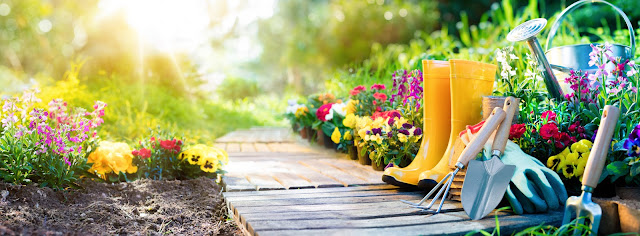A Beginner's Guide To Taking Care Of A Garden
Psychologists agree that hobbies are important for people to retain emotional health and wellbeing. While there are many different hobbies from reading to jogging, one of the most rewarding hobbies is gardening. Nowadays, it is possible for an individual to begin and maintain all types of gardens including vegetable and herb gardens. The pleasure of growing vegetables is one that cannot be described and eating these organic foods is even more enjoyable. This article will provide information on how to take care of a vegetable garden.
1. Choosing Locally Adapted Varieties
The first fact to remember when setting up a vegetable garden is that not all vegetable varieties grow in all areas. To ensure that the vegetables in your garden adapt to the area, it is important to do research and speak with experiences. You can also head to the local nursery where you can gain information about the most suitable varieties for your residence. If the plant is not suitable for your area, they are more susceptible to diseases and cannot endure the weather conditions.
2. Plant At The Best Time Of Year
While you may be desperate to plant throughout the year, only seeds planted at the most suitable time will bloom correctly. Seed packets tend to provide planting instructions, but this information can also be found online. In some areas, planting over several times over summer can help maintain a longer harvest; however, you must plant precisely for a bountiful growth.
3. Preparing The Soil Properly Before Planting
Needless to say, working in generous amounts of compost or composted manure will help the plants grow. If you do not have access to manure, it may be useful to use fertilizer containing nitrogen. However, the best option is organic compost; therefore, if you are able to obtain manure this will always be the ideal alternative. It may smell horrible, but it is highly beneficial.
4. Planting Correctly
As is mentioned above, it is important to plant at the correct time of year; but it is also important to plant the seed correctly. For the plant to be suitably sown, it should be at a good depth with enough space around it for effective growth. Directions are often available on the seed packets, but you can contact the local nursery if you have any questions. Remember, vegetables need room to grow so do not place the seeds too close together.
5. Consistent Watering
It is essential that you maintain an even soil moisture so that the plants do not dehydrate but do not over-water or they may "drown". While you should water deeply, give the soil time to dry slightly before re-watering. Inconsistent watering can reduce the effectiveness of growth; therefore, it may be useful to install a drip irrigation system. This type of watering system is connected to an automatic timer and ensures consistent watering.
6. Control Insects
The majority of insects enjoy fresh vegetables, so you should keep your eyes out for pest damage to the plants. To reduce this damage, it is recommended that you cover the plants in a solution designed to repel pests.




Comments
Post a Comment